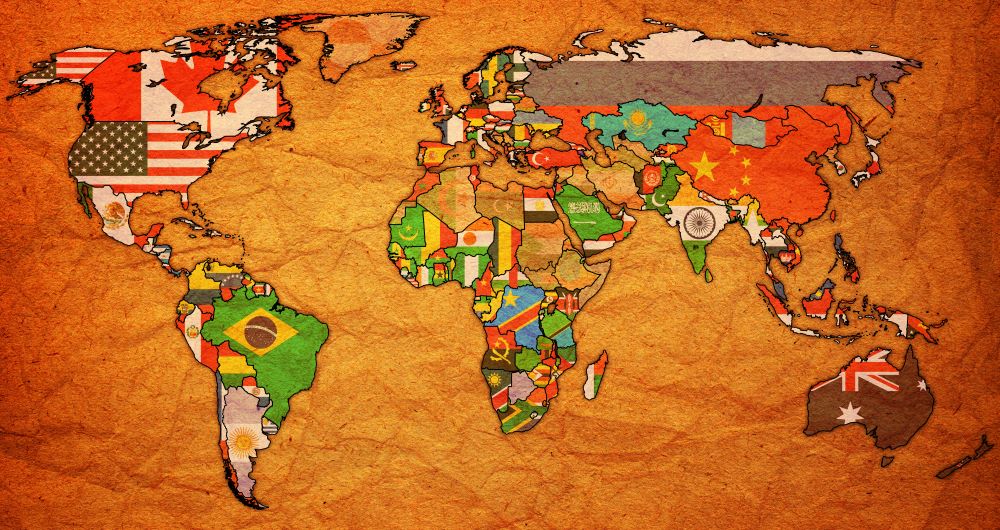
Written by Roberto Azevêdo, Director-General of the World Trade Organization. @WTODGAzevedo.
This article first appeared in the Autumn 2018 edition of World Trade Matters.
Since its creation over 70 years ago, the global trading system has helped to fuel growth and development across the globe. It has provided a stable and predictable playing field for trading relations to take place, ensuring that everybody can benefit from the opportunities that trade provides.
This system was conceived in response to the economic devastation that followed the crisis of the 1930s, when protectionist actions wiped out two-thirds of global trade. Nations came together to build a framework of common rules, based on the principles of stability, transparency and cooperation. The United Kingdom has a special place in this history – the country's roots in the trading system are very deep. The first meeting of the preparatory committee which eventually led to the General Agreement on Tariffs and Trade (GATT) was held in London. The UK went on to become a founder member of the GATT and of its successor, the WTO – and of course, it will continue to be a member of the organization after its separation from the European Union.
The value of the trading system has been proven on many occasions. This was clear after the economic crisis in 2008 when, unlike in the 1930s, we did not see a proliferation of protectionist measures. Members held true to their commitments under the WTO.
Today, however, we are seeing some very worrying signs. Trade tensions are on the rise. WTO data shows a big increase in new trade restrictive measures applied by economies. The situation is extremely serious. Continued escalation risks a major economic impact, threatening jobs and growth in all countries. Indeed, we may already be seeing some of these effects in delayed investment decisions, for example.
We need urgently to de-escalate the situation, and to stand up for the rule of law in global trade. Imagine a scenario where this started to falter and the system began to fail. What if tariff levels were no longer bound at the historically low levels we see today, if we could not rely on members honouring their services commitments, or if the system of settling trade disputes was to erode? The consequences would be dramatic.
Some estimates show that if tariffs returned to the levels before the multilateral trading system was created, we could see trade flows fall by 60%, while the global economy could contract by 2.4%. That's even bigger than the contraction after the 2008 crisis. It's an extreme example, but it shows just how important the trading system is. We must not take it for granted.
I am therefore urging leaders to show restraint and engage constructively to find ways to address their concerns and strengthen global trade. Among other things, we must address government introduced distortions that lead to overcapacity and other imbalances which are at the core of trade and political tensions. We must also respond to the anxieties of those who feel left behind by the current model, and help them adapt to the modern economy.
In this way, the situation is sparking a wider debate about how to improve and reform the trading system to ensure that it continues to respond to the economic realities and business practices of the 21st century. This could prove welcome and potentially help us to find a path out of the current crisis.
But the effort to improve the functioning of the WTO is not new – it has been my goal as Director-General over the last few years and we have achieved a great deal to that end.
In recent years the WTO has delivered a run of agreements, such as the Trade Facilitation Agreement, the agreement to eliminate agricultural export subsidies, and the expansion of the Information Technology Agreement. Together, these deals represent the biggest trade reforms in a generation. Another notable development is that groups of Members have begun conversations in a number of new areas, including electronic commerce, investment facilitation, SMEs, domestic regulation in services and the economic empowerment of women.
We are also working with the private sector to promote practical ideas in all of these areas. Many business leaders have responded to this call, including the Institute of Export and International Trade.
All this activity shows that governments and businesses see value in the platform that the WTO provides. The system may not be perfect, but it works. So we should do everything we can to strengthen it, to make it more effective in addressing the trade challenges of today and ready to face the challenges of tomorrow. In the end, we all stand to benefit from this shared endeavour.



